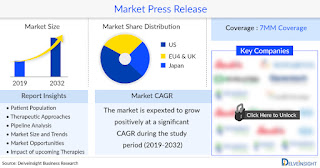Navigating the Landscape of Rare Disease Markets: A Comprehensive Overview

In the realm of healthcare, the battle against rare diseases often remains a challenging frontier. Conditions like Short Bowel Syndrome, Complement 3 Glomerulopathy, Retinitis Pigmentosa, Aplastic Anemia, Nephrotic Syndrome, Pulmonary Arterial Hypertension, Hemophilia A, and Complicated Urinary Tract Infections are not only medically complex but also pose significant burdens on patients and healthcare systems worldwide. As research progresses and innovative therapies emerge, understanding the dynamics of these niche markets becomes increasingly crucial. Let's delve into the unique characteristics, challenges, and advancements within each of these markets. Short Bowel Syndrome Market Short Bowel Syndrome (SBS) is a rare gastrointestinal disorder characterized by the malabsorption of nutrients due to a significant portion of the small intestine being missing or non-functional. This condition often results from surgical resection due to conditions like Crohn's disease or inte
